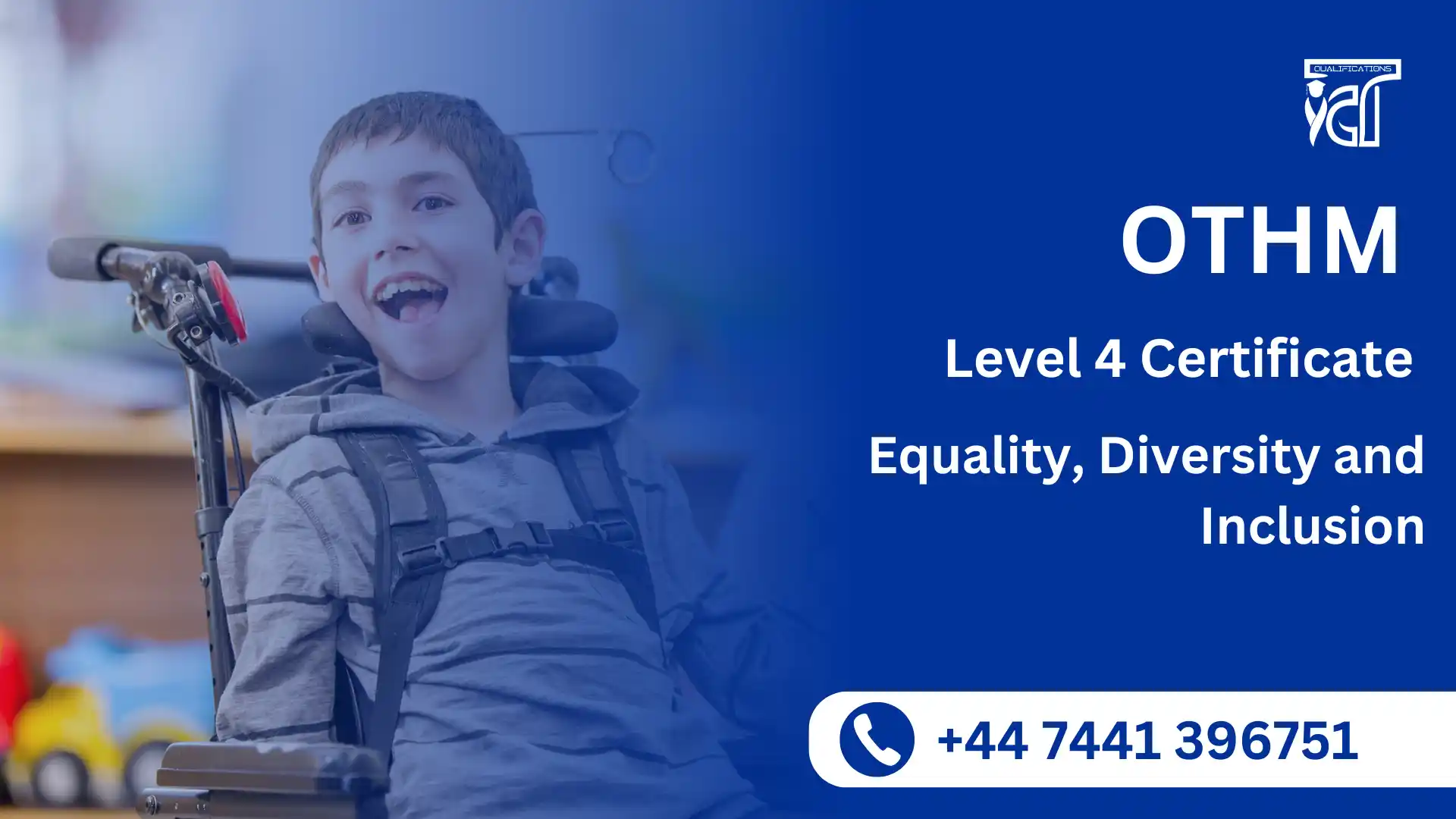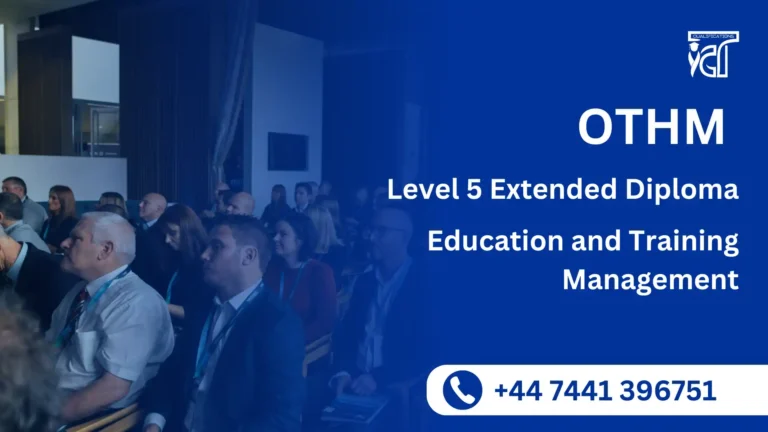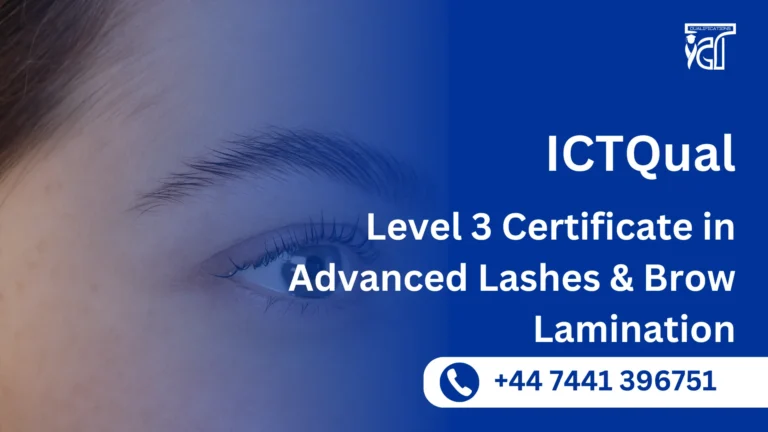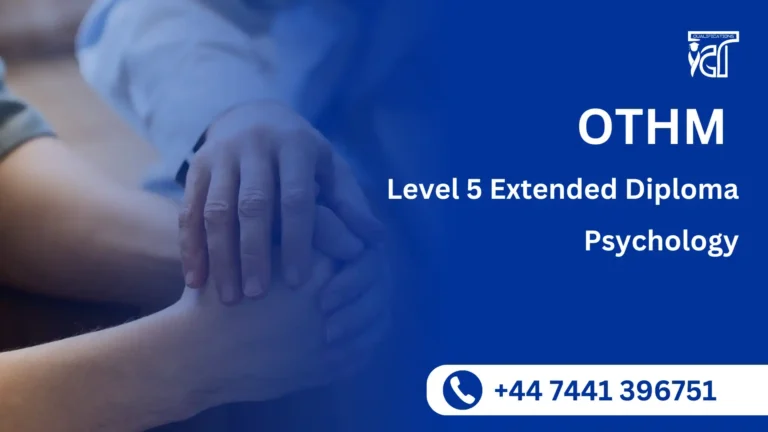In today’s dynamic and diverse professional landscape, promoting equality, diversity, and inclusion (EDI) has become essential for organizations and individuals alike. The OTHM Level 4 Certificate in Equality, Diversity, and Inclusion is a highly regarded qualification designed to equip learners with the knowledge and skills necessary to foster inclusive environments. As an Ofqual-regulated qualification, it meets high academic and professional standards, making it a valuable credential for those looking to advance in HR, management, education, and social work.
The OTHM Level 4 Certificate in Equality, Diversity, and Inclusion is an essential qualification for professionals seeking to champion inclusivity in their workplace or community. With an Ofqual-regulated status, an assignment-based assessment approach, and career-enhancing benefits, this course provides a solid foundation for individuals committed to driving positive change in their organizations.
For those looking to build expertise in EDI, this qualification is a strategic step towards creating fair, diverse, and inclusive environments across various sectors.
OTHM Level 4 Certificate in Equality, Diversity and Inclusion
The qualification comprises three mandatory units, totaling 36 credits, with a Total Qualification Time (TQT) of 360 hours. Additionally, the recommended Guided Learning Hours (GLH) for this qualification is a minimum of 125 hours.
Level 4 Mandatory units:
| Sr# | Unit Title | Credits | GLH |
|---|---|---|---|
| 1 | Equality and Diversity | 6 | 25 |
| 2 | Inclusive Practice | 15 | 150 |
| 3 | Action Research | 15 | 50 |
GLH (Guided Learning Hours) and TQT (Total Qualification Time) are terms commonly used in vocational qualifications to help define the amount of time a learner is expected to spend on heir studies.
1. GLH (Guided Learning Hours)
GLH refers to the number of hours a learner spends being directly taught, supervised, or supported during their course. This includes the time spent in activities such as:
- Classroom instruction
- Practical workshops
- One-on-one tutoring or mentoring sessions
- Online learning sessions with tutor support
In other words, GLH represents the time that learners are actively engaged with their instructors or learning activities.
2. TQT (Total Qualification Time)
TQT represents the total amount of time a learner is expected to invest in completing a qualification, including:
- GLH (Guided Learning Hours): Time spent on direct learning, as explained above.
- Self-Directed Learning: This includes time spent on independent study, research, assignment completion, preparation for exams, and any other work the learner does outside of direct teaching hours.
TQT is a broader measure that includes all the time required to achieve the qualification. It helps learners and employers understand the overall commitment required for the qualification.
Key Differences Between GLH and TQT:
- GLH focuses on direct learning with guidance or supervision.
- TQT includes GLH as well as independent study time and other learning-related activities.
Example:
If a qualification has a TQT of 600 hours and a GLH of 250 hours, it means the learner should spend 250 hours in direct learning (classroom, online, or tutor-led sessions) and 350 hours on independent study or research.
Learning Outcomes of OTHM Level 4 Certificate in Equality, Diversity and Inclusion
Equality and Diversity
- Understand the key features of a culture which promotes equality and values diversity
- Understand the importance of promoting equality and valuing diversity in lifelong learning.
- Be able to promote equality and value diversity.
- Understand how to help others in the promotion of equality and valuing of diversity.
- Be able to review own contribution to promoting equality and valuing diversity in lifelong learning.
Inclusive Practice
- Understand factors which influence learning.
- Understand the impact of policy and regulatory frameworks on inclusive practice.
- Understand roles and responsibilities relating to inclusive practice
- Understand how to create and maintain an inclusive learning environment.
- Understand how to evaluate own inclusive practice.
Action Research
- Understand the purpose and nature of action research.
- Be able to initiate action research.
- Understand ways of carrying out action research.
- Be able to carry out action research.
- Be able to present the outcomes of action research.
- Be able to evaluate own practice in relation to action research.
The OTHM Level 4 Certificate in Equality, Diversity, and Inclusion is designed for individuals seeking to develop their understanding of inclusive practices in the workplace and society. This course offers numerous benefits, including personal growth, career enhancement, and a deeper understanding of social responsibility.
1. Comprehensive Knowledge of EDI Principles
Learners gain a thorough understanding of equality, diversity, and inclusion (EDI), including key legislation, policies, and best practices that promote fairness and inclusivity in different environments.
2. Enhanced Career Opportunities
This qualification opens doors to careers in human resources, education, social work, and management, where EDI knowledge is essential for fostering a positive and legally compliant work culture.
3. Legal and Ethical Awareness
Students develop insights into anti-discrimination laws and ethical considerations, ensuring compliance with policies that protect individuals from bias and inequality.
4. Stronger Leadership and Communication Skills
The course enhances leadership abilities, enabling professionals to promote inclusivity, resolve conflicts, and build diverse, harmonious teams.
5. Increased Workplace Productivity and Harmony
By understanding and implementing EDI strategies, professionals contribute to a positive work environment, leading to higher morale and efficiency.
6. Personal and Social Impact
Learners become advocates for fairness and diversity, making meaningful contributions to both professional and personal spaces.
This qualification empowers individuals to create inclusive environments, making them valuable assets in any organization.
The OTHM Level 4 Certificate in Equality, Diversity, and Inclusion (EDI) is designed for individuals who are passionate about promoting fairness, respect, and inclusivity in workplaces and society. This course is suitable for learners from diverse backgrounds who seek to enhance their knowledge and career prospects in EDI-related fields.
1. Aspiring and Current HR Professionals
Human resources personnel looking to implement inclusive workplace policies and ensure compliance with equality laws will greatly benefit from this qualification.
2. Managers and Team Leaders
Leaders who aim to foster diversity and inclusion within their teams can gain valuable insights into effective EDI strategies, conflict resolution, and inclusive leadership.
3. Social Workers and Community Leaders
Individuals involved in social services, non-profits, and advocacy will enhance their ability to support underrepresented communities and promote fair treatment for all.
4. Educators and Trainers
Teachers, trainers, and learning facilitators who wish to create inclusive learning environments can use this course to improve their understanding of diversity in education.
5. Career Changers and Personal Development Seekers
Anyone looking to transition into EDI-focused roles or develop a strong understanding of equality and fairness in different sectors will find this course beneficial.
This qualification is ideal for anyone dedicated to making a positive impact by promoting inclusivity in professional and social settings.
Entry Requirements
Register Now
Qualification Process
Qualification Process OTHM Level 4 Certificate in Equality, Diversity and Inclusion
- Self-Assessment:
Begin by evaluating your eligibility to ensure you meet the qualification requirements, including work experience, knowledge, and language proficiency. - Registration:
Complete your registration by submitting the required documents, including a scanned copy of a valid ID, and paying the registration fee. - Induction:
An assessor will conduct an induction to confirm your eligibility for the course and explain the evidence requirements. If you do not meet the criteria, your registration will be canceled, and the fee will be refunded. - Assignments & Evidence Submission:
Provide all assignments and the necessary evidence based on the assessment criteria outlined in the course. If you are unsure of the required evidence, consult with the assessor for guidance on the type and nature of evidence needed. - Feedback and Revision:
The assessor will review your submitted evidence and provide feedback. Evidence that meets the criteria will be marked as “Criteria Met,” while any gaps will be identified. You will be asked to revise and resubmit if needed. - Competence Evidence:
Submit final evidence demonstrating that all learning outcomes have been met. This evidence will be marked as “Criteria Met” by the assessor once it is satisfactory. - Internal Quality Assurance (IQA):
The Internal Quality Assurance Verifier (IQA) will review your evidence to ensure consistency, quality, and compliance with standards. - External Verification:
The IQA will submit your portfolio to OTHM External Quality Assurance Versifier (EQA) for final confirmation. The EQA may contact you directly to verify the authenticity of your evidence. - Certification:
Upon successful completion of all checks, OTHM will issue your official certificate, confirming that you have attained the OTHM Level 4 Certificate in Equality, Diversity and Inclusion







